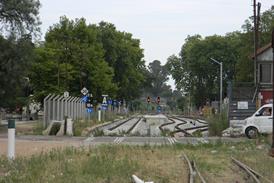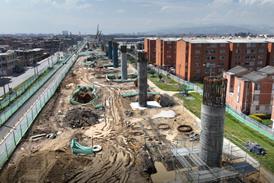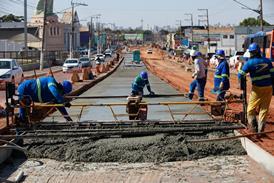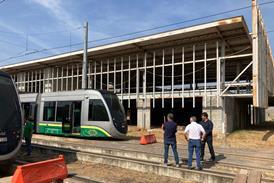INTRO: Legislative changes are set to grant Germany’s Federal Railway Office ’real teeth’, including the ability to intervene directly in negotiations over paths between operators and infrastructure company DB Netz. Murray Hughes asked EBA President Dipl-Ing Horst Stuchly about EBA’s activities, including its role as purseholder for DB’s infrastructure investment programme
BY THE END of this year legislation giving Germany’s Federal Railway Office (EBA) wider powers should have cleared the Bundestag. The move is the first major change to EBA since it was set up in January 1994. At that time German Federal Railway and its East German counterpart German State Railway were fused into a single company, DB AG, which was structured in the same way as a private business.
At the time legal responsibilities for DB AG were divided between those covered by private law and others requiring state involvement. State activities were split between the EBA and the Federal Railway Property agency (BEV). BEV had responsibility for managing down accumulated debts amounting to DM76bn, employing civil servants (Beamten) seconded to DB AG, and for selling off non-operational land and assets worth around DM13·5bn - to help pay off the debts.
At the same time EBA was established ’in a logical second between December 31 1993 and January 1 1994’, as EBA President Dipl-Ing Horst Stuchly puts it. In contrast to BEV, whose existence will end when the last civil servant retires and the last DM of debt is paid off, EBA is a permanent body. Apart from the 250 people at its Bonn headquarters, EBA has 15 regional offices employing around 1000 staff.
EBA has multiple responsibilities as a monitoring and licensing authority. Four main departments cover licensing and approvals (central services), infrastructure, rolling stock and operations, and finance (Fig 1).
EBA also has licensing and supervisory powers for any magnetic levitation route built in Germany - after abandonment of plans for a high speed maglev route from Hamburg to Berlin in February 2000, interest currently centres on plans for two lines, one serving München airport and the other, dubbed MetroRapid, between cities in the Rhein-Ruhr area.
New line approvals
Among the activities falling within EBA’s licensing department is planning approval for new lines, a process that requires two separate legal stages before work can start. First comes the alignment approval stage (Raumordnungsverfahren), which is essentially when the railway promoting the project reaches a consensus on the route. EBA is closely involved here, and has the final say on the choice of alignment. Thus, the EBA decided that the K




















